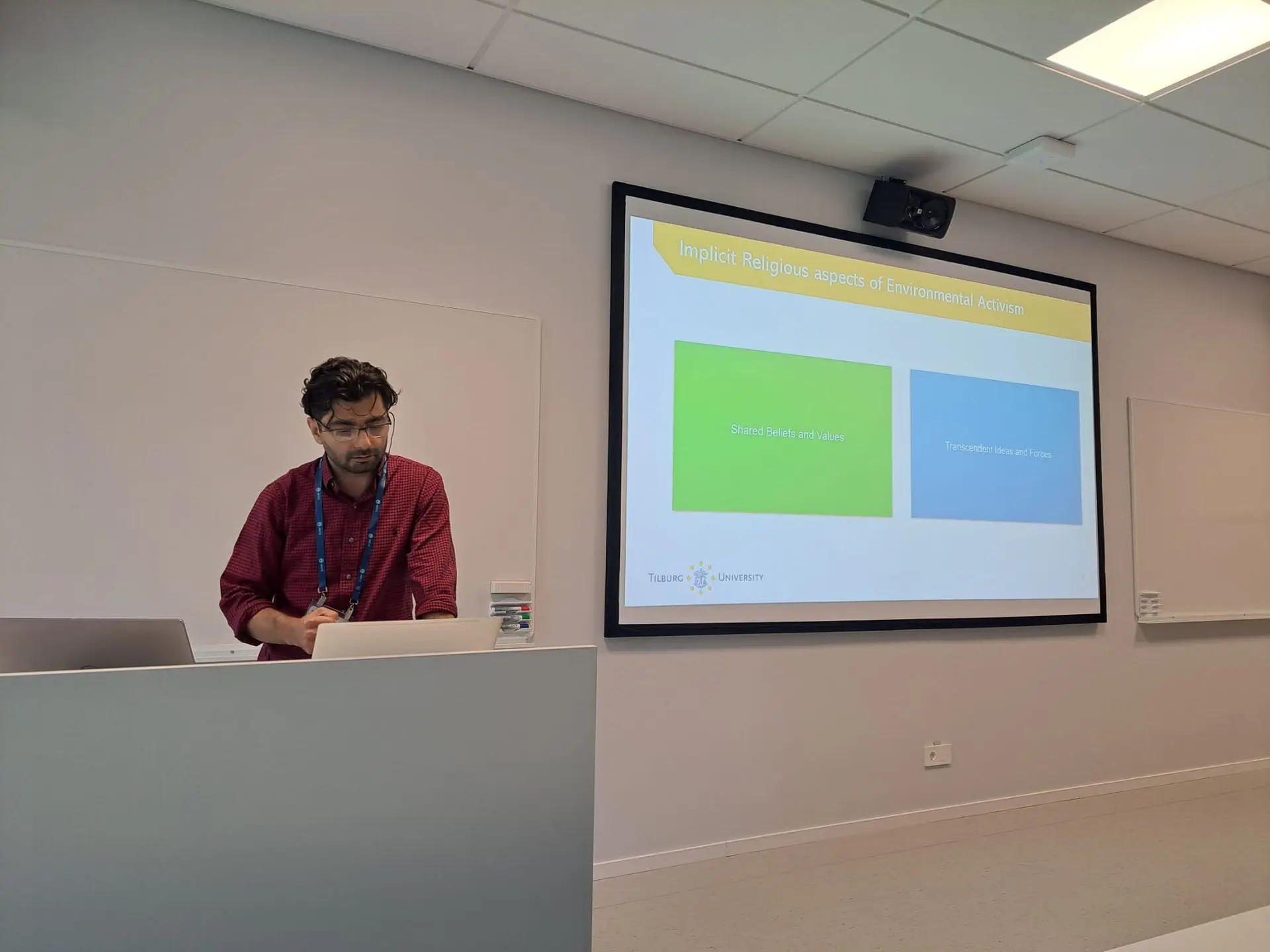Researchers Present Climate-Religion Studies at EASR 2024 in Gothenburg
The 21st Annual Conference of the European Association for the Study of Religions (EASR) was held from August 19-23, 2024, in Gothenburg, Sweden. Attracting more than 400 participants, the conference proved to be highly productive. Focusing on the theme "Nature, Ecology, and Religious Responses to Climate Change," the event explored how religious beliefs and spiritual practices intersect with environmental issues, especially in the face of global warming, deforestation, and other ecological crises. Scholars gathered to discuss whether current environmental challenges are perceived as divine punishment, human-induced problems requiring repentance, or part of a grand cosmic plan. The conference featured panels, individual papers, and roundtables addressing both contemporary crises and historical perspectives on nature, ecology, and religion.
Three researchers from the Religion and Climate Change project team presented their findings at the conference. Frank G. Bosman analyzed the various ways climate activism is associated with religion. He identified three primary associations: constructive, where climate activism is supported through religious language; destructive, which disqualifies both religion and activism; and deconstructive, where climate activism is dismissed as a false religion. Bosman exemplified the deconstructive association through an in-depth analysis of Dutch right-wing politician Thierry Baudet's speech "The Owl of Minerva," highlighting how climate skepticism can be framed in religious terms to discredit environmental movements.
Ömer Gürlesin explored the intersection of environmental activism and implicit religious elements within the Extinction Rebellion (XR) movement in the Netherlands. He examined how XR employs religious metaphors, symbols, and narratives in its online discourse, framing climate activism as a moral and spiritual obligation. Drawing on theories by Edward Bailey and Meerten Ter Borg, Gürlesin highlighted six key categories—shared beliefs, transcendent ideas, commitment, community, meaning, and hope—that demonstrate XR's quasi-religious nature. He concluded that while these religious elements strengthen XR's unity and mobilization, they also pose challenges concerning public perception and inclusivity.
Deborah de Koning presented on the relevance of walking meditation as a Buddhist-inspired climate ritual in Western Europe. Focusing on the Netherlands, she discussed how eco-Buddhist walking meditation is practiced by followers of the Plum Village tradition, founded by Vietnamese Zen monk Thich Nhat Hanh. This form of "engaged Buddhism" connects spiritual insights with social action. De Koning explained that participants engage in mindful walking and breathing exercises in natural settings, emphasizing concepts like interbeing and interconnectedness. She noted that this practice not only deepens the connection with the environment but also serves as a therapeutic remedy against eco-anxiety through its calming effects.
The contributions of these researchers enriched the conference's exploration of how religious perspectives can both challenge and inspire responses to ecological crises. Their work highlights the multifaceted ways in which spirituality and environmental activism intersect in contemporary society.




